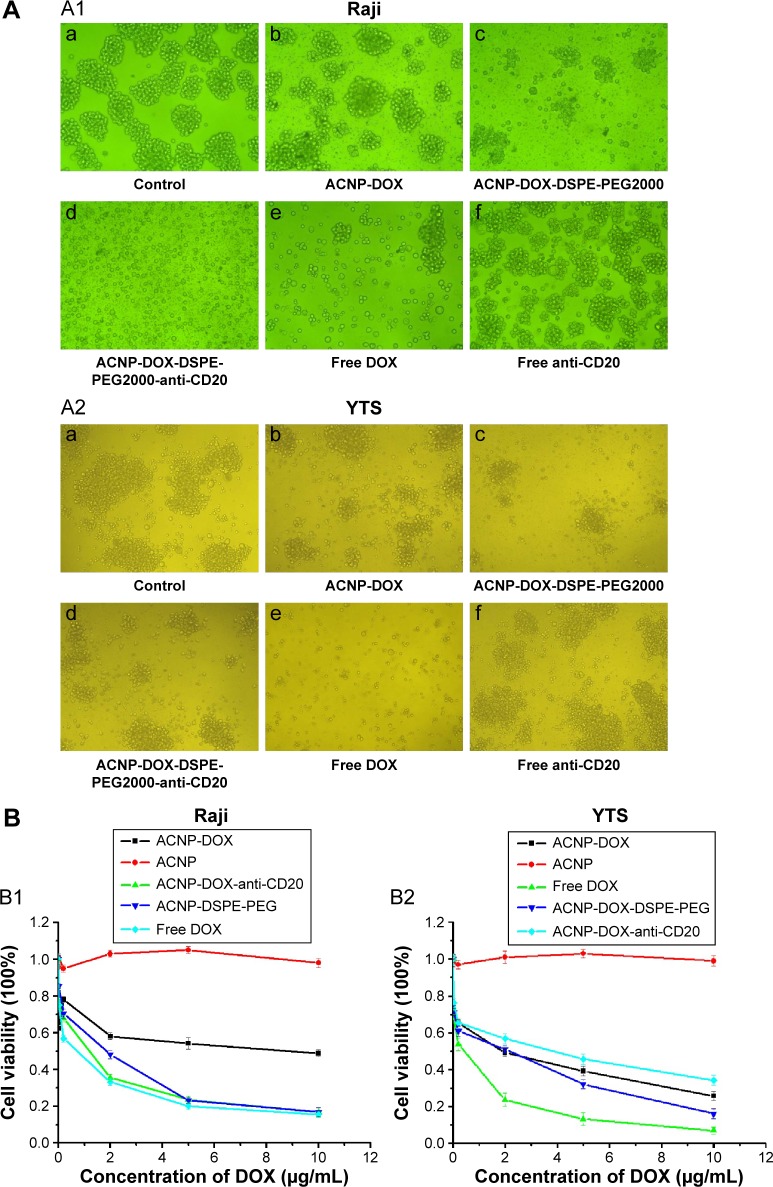Figure 5.
In vitro inhibitory effects of ACNP-DOX-DSPE-PEG2000-anti-CD20 on Rajis (A1, ×200) and YTS (A2, ×100) with light microscopy, Rajis (B1) and YTS (B2) with MTT.
Notes: (A) Control Raji (A1a) and YTS (A2a) cells grew in cohesive clusters. Compared with ACNP-DOX (A1b, A2b), ACNP-DOX-DSPE-PEG2000 (A1c, A2c) showed strong cell inhibitory effects on Raji and YTS cells. ACNP-DOX-DSPE-PEG2000-anti-CD20 treated Raji (CD20-positive cells) grew in non-cohesive groups and showed early cell lysis (A1d), while YTS cells (CD20-negative) continued to grow in cohesive groups (A2d). Free DOX (A1e, A2e) showed the strongest cell inhibitory effects on Raji and YTS. Treatment with CD20 antibodies alone resulted in weak inhibitory effects on Raji cells (A1f) and YTS cells (A2f). (B) Free DOX had the strongest cytolytic effect on both Raji (B1) and YTS (B2) cells, indicating that DOX alone had no cell selectivity. The inhibitory effect of the ACNP-DOX-DSPE-PEG2000-anti-CD20 on Raji cells was almost the same as that of free DOX (B1), but had a milder effect on YTS cells than that of DOX alone (B2), indicating that anti-CD20 conjugated NDDS had a targeted cytolytic effect on CD20-positive Raji cells. ACNP-DOX and ACNP-DOX-DSPE-PEG2000, had mild inhibitory effects on both Raji cells and YTS cells.
Abbreviations: ACNP, active carbon nanoparticles; DOX, doxorubicin; DSPE, 1,2-distearoyl-sn-glycero-3-phosphoethanolamine; NDDS, nanoscale drug delivery system; PEG, polyethylene glycol.

